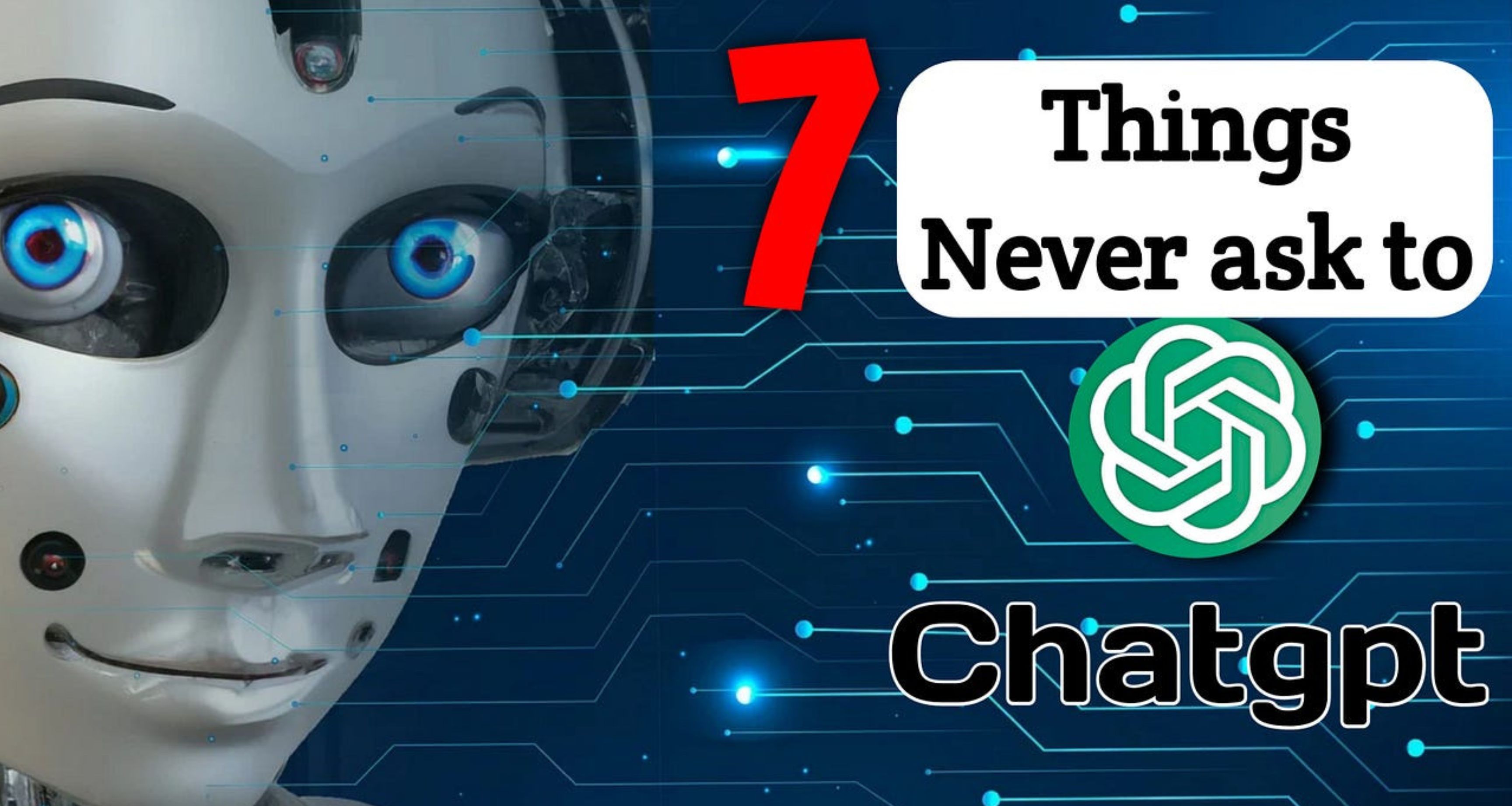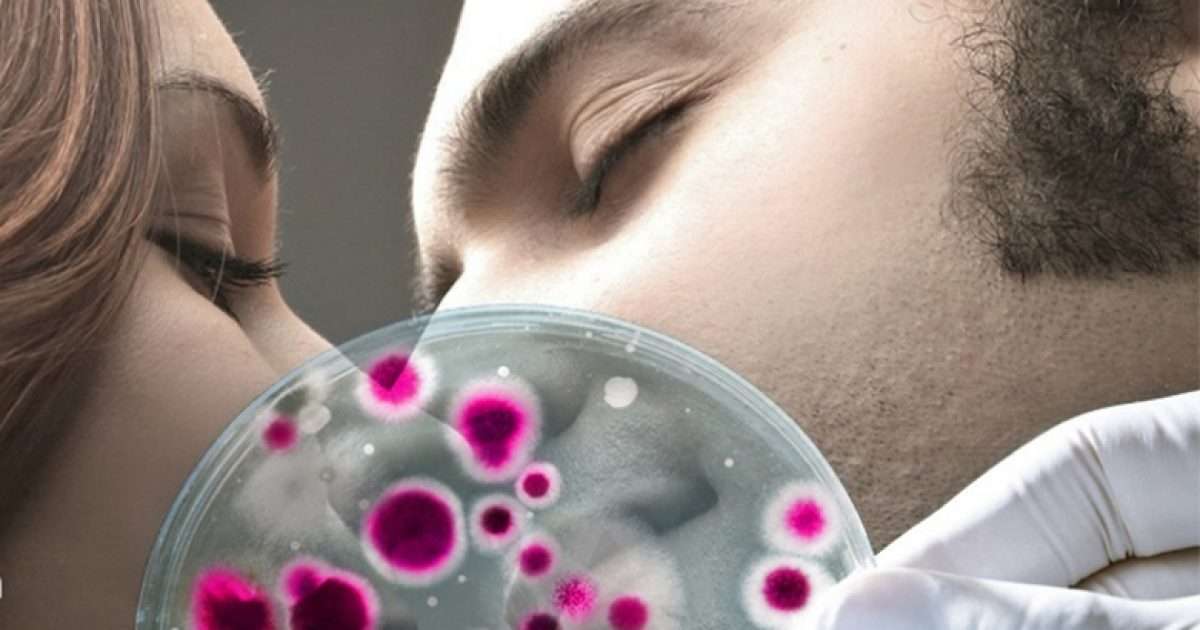Empowering Change Through Awareness
Stay Informed. Stay Empowered.
Fraud Awareness News

7 Things You Should Never-Ever Tell or Ask from ChatGPT and Other AI Chatbots
Artificial intelligence (AI) chatbots like ChatGPT are unique tools for communication, problem solving and information sharing. However, despite their great benefits, they come with restrictions and limitations that users must respect. Misusing AI chatbots can lead to unintended consequences, ethical concerns, or security risks. Below are seven important things you should never say or ask AI chatbots, detailed to help you use this technology knowledgeably and responsibly
1. Sharing Personal or Confidential Information
AI chatbots are not designed to securely handle sensitive or confidential data. Sharing personal details like passwords, credit card numbers, bank account details, Social Security numbers, or medical records can compromise your privacy and security. While most AI systems are designed to safeguard data, there is always a potential risk if this information is stored, accessed, or misused inadvertently.
Best Practice: Treat chatbots as public communication tools. Never share anything you wouldn’t disclose in a public forum. For secure transactions or data handling, use authorized and encrypted platforms specifically designed for those purposes.
2. Requesting Assistance with Illegal or Unethical Activities
AI chatbots are programmed with strict ethical guidelines and will refuse to comply with requests that promote illegal, harmful, or unethical behavior. This includes creating malicious code, aiding in fraudulent activities, or sharing content that incites violence or discrimination.
Why It Matters: Misusing AI in such ways not only breaches ethical standards but also risks legal repercussions. Platforms monitor user interactions to prevent abuse, and flagged behavior may result in restrictions or bans.
3. Engaging in Violent, Harmful, or Inappropriate Content
Asking AI to generate content that promotes violence, self-harm, or hate speech is both unethical and counterproductive. AI systems are designed to foster positive and constructive conversations and will typically block or avoid generating such content.
Impact: Such behavior can lead to the degradation of responsible AI use, potentially harming individuals and the broader community. If you’re in distress or considering self-harm, consult a licensed professional or reach out to trusted support networks.
4. Seeking Emotional or Mental Health Counseling
AI chatbots are not equipped to provide genuine emotional support or mental health counseling. While they can simulate empathy and provide general advice, they lack the ability to understand complex emotions, provide personalized solutions, or offer nuanced psychological help.
Alternative: Always seek help from qualified mental health professionals or crisis support lines for emotional or psychological issues. Relying on AI for such matters can lead to incomplete or unhelpful advice.
5. Testing AI’s Limits or Asking Paradoxical Questions
Many users are tempted to challenge AI systems by posing paradoxical, trick, or nonsensical questions. While this might seem entertaining, it doesn’t serve a productive purpose and can waste time for both users and developers analyzing AI interactions.
Examples of Misuse: Questions like “Can you prove you’re sentient?” or “What happens if you contradict yourself?” may lead to meaningless loops and dilute the AI’s potential for valuable engagement.
6. Spreading Misinformation or Seeking Controversial Opinions
AI systems rely on pre-existing data and algorithms to provide responses. If you feed false information or ask for perspectives on highly polarized topics, the chatbot’s answers may lack accuracy or context. Additionally, using AI to amplify misinformation can have far-reaching consequences.
Pro Tip: Always cross-verify facts from reliable sources. Use AI as a supplementary tool rather than a definitive source of truth.
7. Relying on AI for Critical or Life-Altering Decisions
While AI can assist with recommendations and general advice, it should never replace human expertise in critical decision-making areas like legal advice, medical diagnoses, or financial planning. Blind reliance on AI can lead to errors with significant consequences.
Scenario: Using AI to draft a legal document or diagnose a medical condition without professional oversight can result in costly mistakes.
Best Approach: Treat AI as a complementary tool. Validate its suggestions with professionals in the relevant field before acting.
Why These Rules Matter
AI chatbots are designed to enhance productivity, provide information, and simplify complex tasks, but they are not without limitations. Misusing them can compromise security, ethical integrity, and even legal compliance. By understanding what not to ask or share, users can ensure a safe and constructive interaction with AI systems.
Quick Recap:
1.Avoid sharing personal or confidential details.
2.Don’t request assistance with illegal or unethical activities.
3.Refrain from engaging in violent or harmful content.
4.Seek professional help for emotional or mental health concerns.
5.Avoid testing AI with paradoxical or nonsensical questions.
6.Cross-check information to prevent misinformation.
7.Do not rely solely on AI for critical decisions.
By following these guidelines, you can maximize the benefits of AI while ensuring ethical and responsible use. Always remember that AI is a tool—a powerful one—but it’s up to us to use it wisely and effectively.

Jamtara Cyber Gangs Exploit AI to Develop Fake Apps for Large-Scale Digital Fraud
Ranchi: In a disturbing new trend, cybercriminals from Jamtara, India's infamous cyber fraud hub, are leveraging artificial intelligence (AI) to create deceptive Android applications designed to defraud unsuspecting users. These criminals, known for constantly evolving their tactics, have now mastered the art of developing malware-laden apps that bypass security checks, posing a severe threat to digital safety.
This alarming revelation surfaced during an extensive investigation following the arrest of six cybercriminals operating under the alias DK Boss in Jamtara. The gang is suspected of orchestrating digital frauds amounting to Rs 11 crore, linked to 415 complaints from across the country.
Fake Government and Banking Apps as Tools of Deception
The fraudsters have been using Java programming to develop fake Android applications disguised as government welfare schemes such as ‘PM Kisan Yojna.apk’ and ‘PM Fasal Bima Yojna.apk’. They also replicated banking apps from prominent institutions like the State Bank of India (SBI), Canara Bank, Punjab National Bank (PNB), and Axis Bank.
APK, or Android Package Kit, is the format used for installing apps on Android devices. These cybercriminals exploited the growing trust in digital platforms to distribute their malicious APK files, deceiving victims into downloading them. Once installed, these applications granted the fraudsters unauthorized access to sensitive personal and financial information.
AI-Powered Fraud: ChatGPT and Sophisticated Coding
The investigation uncovered that the gang employed ChatGPT and other AI tools to generate malicious code and enhance their deceptive applications. By using AI-driven development techniques, they were able to create highly sophisticated malware that evaded detection by antivirus software and security patches.
“Some of these cybercriminals have acquired basic coding skills to develop APK files under the guise of legitimate schemes,” said DSP Chandrashekhar, a key member of the investigation team. “Once a victim downloads the app, it can access their phone’s data, steal banking credentials, intercept OTPs, and forward sensitive SMS messages, ultimately leading to unauthorized financial transactions.”
The Business of Cybercrime: Selling Malware for Profit
The gang was not only using these fake applications for their own fraudulent activities but also engaging in an underground black market where they sold these malicious apps to other criminals. Each fake APK was sold for Rs 20,000 to Rs 25,000, making it a lucrative side business for cyber fraudsters.
During the probe, investigators recovered data from over 2,000 PNB account holders and 500 Canara Bank users from the gang’s digital records. The widespread impact of their operations suggests a significant breach in cybersecurity measures, emphasizing the urgent need for public awareness and digital hygiene.
The Ongoing Fight Against Cyber Fraud
With the increasing sophistication of cybercriminals, law enforcement agencies are intensifying their crackdown on fraudulent digital activities. The recent arrests signal a significant breakthrough, but experts warn that as technology evolves, so do the tactics of cybercriminals.
Authorities urge users to remain vigilant by following these precautions:
Verify App Sources: Only download apps from official platforms like the Google Play Store.
Check Permissions: Avoid granting excessive permissions to apps, especially those requesting access to SMS, contacts, and financial data.
Use Multi-Factor Authentication: Secure your banking and digital accounts with two-step verification.
Regular Security Updates: Keep your devices updated with the latest security patches.
The Jamtara cybercrime syndicate’s use of AI in fraudulent activities raises serious concerns about the ethical implications of advanced technology. While artificial intelligence continues to revolutionize industries, its misuse highlights the urgent need for stricter regulations and enhanced cybersecurity infrastructure to protect users from evolving digital threats.
Health Awareness News

The Science of Kissing: How a 10-Second Kiss Transfers Millions of Bacteria
Kissing is a universal gesture of affection and intimacy, but did you know it also plays a surprising role in shaping your health? According to a study by Dutch researchers, a single 10-second kiss can transfer up to 80 million bacteria between partners. This finding sheds light on the fascinating relationship between human behavior and the microscopic world of oral microbiota.
Couples who kiss frequently—at least nine times a day—were found to have remarkably similar oral bacterial communities. The study, published in the journal Microbiome, reveals how intimate actions influence the balance of bacteria in the human mouth, a place already teeming with microbial life. With over 700 known types of bacteria residing in the oral cavity, kissing becomes more than a romantic act; it’s also a biological exchange with potential health implications.
The Mouth: A Microbial Hub
The human mouth is one of the most diverse microbial ecosystems in the body, hosting bacteria, fungi, and viruses. While some of these microbes are beneficial, helping with digestion and protecting against harmful pathogens, others can contribute to conditions like tooth decay and gum disease.
Intimate kissing serves as a pathway for exchanging oral microbiota, making it a significant factor in how partners influence each other’s microbial makeup. The Dutch study involved 21 couples who were analyzed to measure bacterial transfer during kissing. The results showed that couples who kissed more frequently shared a greater similarity in their oral microbiota compared to those who kissed less often.
Bacteria on the Move
Not all bacteria are transferred equally during a kiss. Some, like Streptococcus mutans—a bacterium associated with tooth decay—are more likely to make the leap between partners. Others may be less adept at surviving the transition. Interestingly, saliva plays a key role in this bacterial exchange. When couples kiss, their saliva mixes, providing an ideal medium for microbes to travel.
The researchers also noted that while a single kiss transfers millions of bacteria, it’s consistent kissing over time that leads to the alignment of oral microbiota. This gradual convergence of microbial communities may have both positive and negative implications for health.
Kissing and Health: The Bigger Picture
The exchange of bacteria during kissing is not inherently harmful. In fact, some researchers believe it could have evolutionary benefits. Sharing bacteria might help partners build immunity to specific pathogens, offering a form of natural protection.
However, there are also risks. Certain bacteria associated with oral infections, such as gum disease, could potentially be passed between partners. Additionally, those with compromised immune systems or pre-existing oral health issues might be more vulnerable to the effects of bacterial transfer.
Despite these considerations, the researchers emphasize that kissing is a natural and generally safe behavior. The long-term impact of these exchanges on health is still being studied, but they highlight the intricate connection between human interactions and microbiomes.
Kissing and the Microbiome: A Complex Relationship
The human microbiome—comprising trillions of bacteria, viruses, and fungi that live in and on our bodies—plays a crucial role in health and disease. Kissing serves as a unique opportunity to study how interpersonal relationships affect microbiomes.
Studies like this one provide valuable insights into how bacterial communities are influenced by lifestyle and behavior. For example, couples who share food, drinks, or cigarettes are likely to further align their oral microbiota. Similarly, parents and children also share bacterial communities through close physical contact.
The Role of Lifestyle in Oral Microbiota
While kissing is a significant factor, it’s not the only determinant of oral bacterial composition. Diet, hygiene, and overall health also play a major role. For instance, consuming a diet high in sugar can promote the growth of harmful bacteria, while regular brushing and flossing help maintain a healthy microbial balance.
Couples who share similar lifestyles and dietary habits are more likely to have similar oral microbiota, which might explain why frequent kissers show such microbial alignment.
The Future of Microbiome Research
The study of how kissing influences the microbiome is still in its early stages, but it opens doors to fascinating possibilities. Researchers are now exploring how microbial exchanges impact not just oral health but overall well-being. Could the alignment of microbiota between partners strengthen immune responses? Or might it influence susceptibility to certain diseases?
While there’s much to learn, one thing is clear: the act of kissing is more than a romantic gesture—it’s a complex biological interaction.
The Takeaway
The discovery that a 10-second kiss can transfer up to 80 million bacteria underscores the profound connection between human relationships and the microbial world. Far from being an isolated event, kissing serves as a mechanism for sharing not just affection but also the building blocks of health.
So, the next time you share a kiss, remember that it’s not just your emotions at play—it’s also a microscopic exchange that reflects the intimate bond between you and your partner. Whether this bacterial sharing benefits health or poses challenges depends on the unique dynamics of each relationship, making kissing a subject of both love and science.
This study reminds us that even the simplest human interactions have layers of complexity, weaving together behavior, biology, and the ever-evolving world of microbes.

